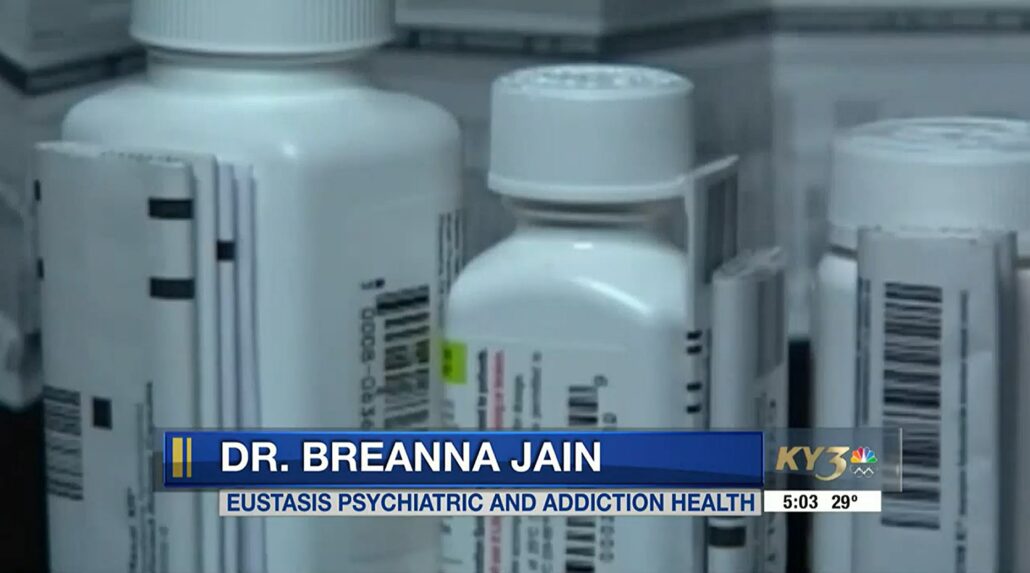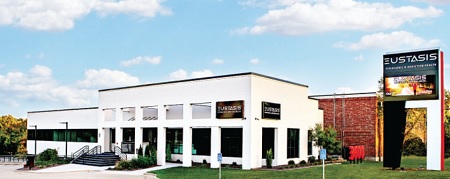“We are glad that Eustasis had the opportunity to be a part of this panel discussion on ADHD and connect with these national mental health providers on this very important diagnosis while sharing our feedback and learning from other leading experts.” – Dr Breánna Jain
_______________________________________
Expanded, Objective ADHD Screening Tools Needed: Expert Consortium Calls for Diagnosis Overhaul
ADHD criteria and diagnostic tools are inadequate for testing adults and individuals with comorbid conditions, which few clinicians today recognize and identify during the evaluation process, according to a new ADHD expert panel that has made key recommendations for improved diagnosis and treatment outcomes.
ADHD is a complex diagnosis that most clinicians are ill-equipped to make thanks, in part, to poor understanding of condition comorbidities and inadequate diagnostic tools, especially for adults. This is the finding of the ADHD Expert Consortium, a panel of experts convened to study barriers to effective diagnosis and treatment for attention deficit hyperactivity disorder (ADHD), and to propose solutions in a consensus statement that included five main recommendations:
- Leverage, expand, and update existing ADHD screening in children to be more universal, across disciplines and improve awareness.
- Develop adult ADHD diagnostic and treatment guidelines in the U.S.
- Make evidence-based, objective testing the standard of care for ADHD in children and adults.
- Better education, rooted in equity, of medical residents and practitioners in pediatrics, neurology, psychiatry, and primary care for the diagnosis and treatment of ADHD.
- Improve insurance coverage for evidence-based ADHD evaluation and treatment.
“ADHD must be viewed as a public health problem producing a substantial impact on the health, quality of life, and economic viability of the U.S. population,” the panel wrote.
Most primary care providers, psychiatrists, and neurologists today lack the confidence and skills needed to accurately screen, treat, and make referrals for ADHD 1, leading to “negative effects on personal development, academic outcomes, and family interactions.”2, 3 Quality ADHD care is scarce, according to the consortium, because most healthcare professionals lack an “understanding about the intersection between culture and ADHD presentation and management.”
The development of universal best practices and consistent use of objective testing would help improve diagnosis and treatment outcomes for patients, especially adults who don’t present stereotypical hyperactive or impulsive symptoms and those who come from diverse cultures or socio-economic backgrounds. However, few objective, evidence-based tools exist today. Reimbursements by insurance payers are limited and often low, which makes it difficult to maintain an efficient and financially sustainable practice. This is worsened by the addition of high administrative burdens like prior authorization requirements.
“Taken together, low reimbursements coupled with high administrative burden highlights the persistent lack of parity between mental health and physical health in our country today,” the panel wrote. “We believe that payers play a critical role in fixing our current mental health crisis through evolution of their payment and utilization management models for mental health.”
The one-day meeting included psychiatrists, neurologists, developmental pediatricians, pediatricians, nurse practitioners, psychologists, neuropsychologists, and patient advocates.
Police warn of counterfeit prescription pill trend in Springfield area
SPRINGFIELD, Mo. (KY3) – The Springfield Police Department seized large quantities of pills that look like Oxycodone, but they have been called Percocet.
Investigators believe the counterfeit pills contain Fentanyl and have led to several overdoses. The recent trend involving counterfeit prescription pills poses a threat to those who may encounter it.
Captain Tony Vienhage said there’s been one fatality connected to these pills, but several people who have recently overdosed had the pills with them.
Physicians commonly prescribe Oxycodone and Percocet as opioid pain medications. Fentanyl is a synthetic opioid that is 80-100 times stronger than morphine. It is commonly added to heroin or other controlled substances to increase their potency. You can absorb it into the body via inhalation or skin contact. Illegally manufactured Fentanyl can be extremely dangerous and has been a major contributor to opioid-related overdoses.
In 2021, the Springfield Police Department responded to 566 calls for service involving overdoses with 61 total fatalities. So far in 2022, the Springfield Police Department has responded to 86 calls for service involving overdoses with eight total fatalities.
Dr. Breanna Jain with Eustasis Psychiatric and Addiction Health says counterfeit pills are highly dangerous, especially when a person is desperate.
“If they’re not able to obtain the substance that they would normally get, they’re going to take what somebody tells them,” said Jain. “[They might say] this is the next best thing or this will make you feel better.”
She said those manufacturing counterfeit pills will purposely add Fentanyl to increase the addiction.
“This is a business to a lot of people,” said Jain. “There’s not a lot of humanity attached to that business of any at all. It’s a means for them to make money at the expense of someone’s tragedy.”
If you have a loved one in this situation, she said to have empathy.
“People don’t necessarily feel that they can bring themselves out of this on their own,” said Jain. “So if you tell them when you’re here and ready to do this, then we’re going to help. What do you need to get there and what can we do to make you feel like you can accomplish this.”
In recent years, the medical industry has seen seismic growth in the number of active nurse practitioners (NPs), surpassing 325,000 as of December 2020, according to the American Association of Nurse Practitioners. All of this comes as NPs take on a larger role within the healthcare system, especially during the pandemic and as new models of healthcare delivery are introduced.
Among the many capabilities of nurse practitioners, specifically psychiatric NPs, is ADHD diagnosis and treatment, also on the rise in recent years. The National Institute of Health estimates its prevalence at 11% in children and 8.1% in adults in the U.S.
Psychiatric nurse practitioners can evaluate, diagnose and treat children (if trained), as well as adults with ADHD and other mental conditions such as anxiety, depression and substance abuse. In many states, NPs work autonomously, without the supervision of a general practitioner and they can do the same things with their patients as a psychiatrist would. This includes conducting regular therapy appointments, ordering diagnostic testing, prescribing medication (where permitted) and monitoring treatment outcomes.
“There are more psychiatric nurse practitioners than there used to be,” said Dr. Breanna Jain, DNP, PMHNP-BC, CARN-AP and CEO of Eustasis Psychiatric & Addiction Health, a multi-state organization. “The nurse practitioner is the new mainstay in treating psychiatric conditions as more realize it’s well within our scope to meet the gap in mental health care.”
Dr. Jain also noted that the number of psychiatrists has decreased, as many fall within the Baby Boomer generation and are retiring, creating further demand. That vacated role now falls on nurse practitioners to meet patient demand.
“The number of nurse practitioners coming into the workforce, sooner than physicians, is allowing them to fill some of the gaps in healthcare, like with mental health, that need addressing a little more,” said Apryl Watson, FNP-BC of Greenville ADHD Specialists in Greenville, SC. “It’s great because multiple studies and analyses have been done to show their quality of care – the counseling and education that they provide is really important.”
This is especially true when supporting the patient demand for ADHD diagnosis and treatment, which reached a tipping point during the pandemic.
“We saw a huge uptick of patients who needed treatment for ADHD who maybe had been compensating with a highly structured workplace or school environment and now had to work or do school from home and just couldn’t do that,” said Dr. Jain. “Many people started reaching out during that time, as some had the chance to become more educated about what ADHD looks like and what the common struggles are when undiagnosed.”
“Part of that is, during the pandemic, awareness surrounding ADHD and what it is and what it means grew,” Watson added. “Even five years ago, people didn’t talk about ADHD as much as they do now.”
NPs and ADHD Diagnosis
Amidst this rising need for ADHD diagnoses, NPs are looking for innovative ways to cater to the modern healthcare industry and patient, including new forms of testing.
Technology such as QbTest from Qbtech utilize computer software to test both children and adults for signs of ADHD during the course of a 15 to 20-minute in-clinic test. For those who are looking for a remote solution with the rise of telehealth options, the company launched FDA-Cleared QbCheck to provide a reliable remote testing option, of which the need for was highlighted by the pandemic.
More and more, nurse practitioners are utilizing such technology as the first line of testing for patients – it’s a quick, validated solution that reduces the potential for over reliance on more subjective assessments, such as the Vanderbilt, which require observation of social interaction – something that’s not always an easy option during a pandemic.
One of the benefits, says Jain, is that patients are able to objectively see the results of their test and understand how they compare to someone their age/gender who does not have ADHD.
For NPs serving ADHD patients there are further challenges when it comes to efficient reimbursement, however.
“Dealing with all the insurance companies and their coverage can be a challenge,” admitted Dr. Jain. “Trying to explain to these companies the importance of treatment all the way down to getting the prescriptions approved and validating the reason why we need one over the other – it can be a disservice to the patient.”
Another benefit, according to Watson, is that for those patients who might be hesitant to test in-person (adults especially), telehealth testing options provide a more private solution.
“It has really opened a lot of doors for people who maybe wouldn’t have signed up to come in and test in-office,” said Watson. “There are all these thoughts going through that person’s mind like, ‘I’m going to this ADHD specialist and what if someone is there that I know?’ I’ve had numerous patients say that if we weren’t offering a virtual option, they would have never come in. But now, they’re thankful they sought diagnosis the way they did – that’s huge.”
The Future for NPs in Mental Health
Having NPs that can offer mental health services and testing is crucial to meet surging demand and ease the burden within the healthcare system. While some of the challenges they face, like insurance coverage, which is already improving, will take some time to overcome, we can already see that the NP’s role is critical in getting patients in the door, properly diagnosed and treated.
Police warn of counterfeit prescription pill trend in Springfield area
SPRINGFIELD, Mo. (KY3) – The Springfield Police Department seized large quantities of pills that look like Oxycodone, but they have been called Percocet.
Investigators believe the counterfeit pills contain Fentanyl and have led to several overdoses. The recent trend involving counterfeit prescription pills poses a threat to those who may encounter it.
Captain Tony Vienhage said there’s been one fatality connected to these pills, but several people who have recently overdosed had the pills with them.
Physicians commonly prescribe Oxycodone and Percocet as opioid pain medications. Fentanyl is a synthetic opioid that is 80-100 times stronger than morphine. It is commonly added to heroin or other controlled substances to increase their potency. You can absorb it into the body via inhalation or skin contact. Illegally manufactured Fentanyl can be extremely dangerous and has been a major contributor to opioid-related overdoses.
In 2021, the Springfield Police Department responded to 566 calls for service involving overdoses with 61 total fatalities. So far in 2022, the Springfield Police Department has responded to 86 calls for service involving overdoses with eight total fatalities.
Dr. Breanna Jain with Eustasis Psychiatric and Addiction Health says counterfeit pills are highly dangerous, especially when a person is desperate.
“If they’re not able to obtain the substance that they would normally get, they’re going to take what somebody tells them,” said Jain. “[They might say] this is the next best thing or this will make you feel better.”
She said those manufacturing counterfeit pills will purposely add Fentanyl to increase the addiction.
“This is a business to a lot of people,” said Jain. “There’s not a lot of humanity attached to that business of any at all. It’s a means for them to make money at the expense of someone’s tragedy.”
If you have a loved one in this situation, she said to have empathy.
“People don’t necessarily feel that they can bring themselves out of this on their own,” said Jain. “So if you tell them when you’re here and ready to do this, then we’re going to help. What do you need to get there and what can we do to make you feel like you can accomplish this.”
In recent years, the medical industry has seen seismic growth in the number of active nurse practitioners (NPs), surpassing 325,000 as of December 2020, according to the American Association of Nurse Practitioners. All of this comes as NPs take on a larger role within the healthcare system, especially during the pandemic and as new models of healthcare delivery are introduced.
Among the many capabilities of nurse practitioners, specifically psychiatric NPs, is ADHD diagnosis and treatment, also on the rise in recent years. The National Institute of Health estimates its prevalence at 11% in children and 8.1% in adults in the U.S.
Psychiatric nurse practitioners can evaluate, diagnose and treat children (if trained), as well as adults with ADHD and other mental conditions such as anxiety, depression and substance abuse. In many states, NPs work autonomously, without the supervision of a general practitioner and they can do the same things with their patients as a psychiatrist would. This includes conducting regular therapy appointments, ordering diagnostic testing, prescribing medication (where permitted) and monitoring treatment outcomes.
“There are more psychiatric nurse practitioners than there used to be,” said Dr. Breanna Jain, DNP, PMHNP-BC, CARN-AP and CEO of Eustasis Psychiatric & Addiction Health, a multi-state organization. “The nurse practitioner is the new mainstay in treating psychiatric conditions as more realize it’s well within our scope to meet the gap in mental health care.”
Dr. Jain also noted that the number of psychiatrists has decreased, as many fall within the Baby Boomer generation and are retiring, creating further demand. That vacated role now falls on nurse practitioners to meet patient demand.
“The number of nurse practitioners coming into the workforce, sooner than physicians, is allowing them to fill some of the gaps in healthcare, like with mental health, that need addressing a little more,” said Apryl Watson, FNP-BC of Greenville ADHD Specialists in Greenville, SC. “It’s great because multiple studies and analyses have been done to show their quality of care – the counseling and education that they provide is really important.”
This is especially true when supporting the patient demand for ADHD diagnosis and treatment, which reached a tipping point during the pandemic.
“We saw a huge uptick of patients who needed treatment for ADHD who maybe had been compensating with a highly structured workplace or school environment and now had to work or do school from home and just couldn’t do that,” said Dr. Jain. “Many people started reaching out during that time, as some had the chance to become more educated about what ADHD looks like and what the common struggles are when undiagnosed.”
“Part of that is, during the pandemic, awareness surrounding ADHD and what it is and what it means grew,” Watson added. “Even five years ago, people didn’t talk about ADHD as much as they do now.”
NPs and ADHD Diagnosis
Amidst this rising need for ADHD diagnoses, NPs are looking for innovative ways to cater to the modern healthcare industry and patient, including new forms of testing.
Technology such as QbTest from Qbtech utilize computer software to test both children and adults for signs of ADHD during the course of a 15 to 20-minute in-clinic test. For those who are looking for a remote solution with the rise of telehealth options, the company launched FDA-Cleared QbCheck to provide a reliable remote testing option, of which the need for was highlighted by the pandemic.
More and more, nurse practitioners are utilizing such technology as the first line of testing for patients – it’s a quick, validated solution that reduces the potential for over reliance on more subjective assessments, such as the Vanderbilt, which require observation of social interaction – something that’s not always an easy option during a pandemic.
One of the benefits, says Jain, is that patients are able to objectively see the results of their test and understand how they compare to someone their age/gender who does not have ADHD.
For NPs serving ADHD patients there are further challenges when it comes to efficient reimbursement, however.
“Dealing with all the insurance companies and their coverage can be a challenge,” admitted Dr. Jain. “Trying to explain to these companies the importance of treatment all the way down to getting the prescriptions approved and validating the reason why we need one over the other – it can be a disservice to the patient.”
Another benefit, according to Watson, is that for those patients who might be hesitant to test in-person (adults especially), telehealth testing options provide a more private solution.
“It has really opened a lot of doors for people who maybe wouldn’t have signed up to come in and test in-office,” said Watson. “There are all these thoughts going through that person’s mind like, ‘I’m going to this ADHD specialist and what if someone is there that I know?’ I’ve had numerous patients say that if we weren’t offering a virtual option, they would have never come in. But now, they’re thankful they sought diagnosis the way they did – that’s huge.”
The Future for NPs in Mental Health
Having NPs that can offer mental health services and testing is crucial to meet surging demand and ease the burden within the healthcare system. While some of the challenges they face, like insurance coverage, which is already improving, will take some time to overcome, we can already see that the NP’s role is critical in getting patients in the door, properly diagnosed and treated.
Springfield mental health clinic offering walk-in patient help for anxiety
By Joe Hickman | Posted: Mon 5:40 PM, Mar 23, 2020 | Updated: Mon 5:46 PM, Mar 23, 2020
SPRINGFIELD, Mo. Who knew two weeks ago that toilet paper would become such a hot commodity or that you’d wonder when-or-if you’ll ever get to sit inside a restaurant or bar again.
Yes, our world is being turned upside down right now with so much to deal with that it’s incomprehensible to fathom all the ways our lives have suddenly changed and whether it’s changed forever.
And all this because of a virus with a name we used to associate with beer.
It’s under these high-anxiety circumstances that the Eustasis Psychiatric and Addiction Health Clinic on the Medical Mile in south Springfield is offering a walk-in same-day service for those dealing with the mental health side of the pandemic.
“This is a time that it’s O.K. to be a little more nervous or anxious,” said Dr. Breanna Jain, a co-owner of Eustasis along with her husband Dr. Alok Jain. “We are seeing patients who have never struggled with delusional disorders or paranoia all of sudden developing extreme symptoms of that. Fear of contamination, sleep problems.”
“You are likely to see high blood pressure, increased heart rate. You will see a lot of symptoms of anxiety,” Dr. Alok Jain added. “It’s like fight-or- flight.”
If you think about it the coronavirus crisis checks every box in what causes our stress including the health of you and your family, your financial stability and the loss of social interaction.
So the most common questions that are asked by patients coming to the clinic?
“People are very concerned about how their children are going to respond,” Breanna said. “They feel helpless as to how they’re going to help elderly loved ones. They normally could rely on their faith but now they’re not able to attend services and have that level of community that we would see in other kinds of disasters where people can come together.”
Part of your anxiety comes from certain parts of your brain becoming overactive.
So how can you change that?
“Regular exercise,” Alok said. “The more physical activity you are doing the more you’re helping.”
“Don’t be locked into a screen all the time,” added Breanna. “Find other things to do. Take on new hobbies.”
And just as worrying too much is a problem, so is the attitude of thinking this is all one big hoax.
“If we have people who are not taking this seriously they’re going to prolong this,” Breanna said. “They’re going to go out and contaminate others. It’s time to take it seriously whether you believe it or not.”
The clinic is open from Monday-Saturday and has in-person or telemedicine services available. You can call 417-322-6622 or go to www.eustasis.com.
“It may not be an obvious natural disaster but it has similar implications for human suffering,” Alok said.
Prioritize your mental health during a pandemic
by: Jenifer Abreu | Posted: Mar 23, 2020 / 08:37 PM CDT / Updated: Mar 23, 2020 / 08:37 PM CDT
SPRINGFIELD, Mo. – Today it seems we are all paying extra attention to our physical health, but it’s also important to keep in mind our mental health.
In times like these, where everyday something is changing, and our daily routines are constantly being adjusted, uncertainty can cause some stress and anxiety. And it can be worse for someone who already has an underlying condition like anxiety or depression.
Dr. Alok Jain, psychiatrist and medical director at Eustasis Psychiatric and Addiction Health in Springfield, and Breanna Jain, the CEO there, talk about ways to get through this situation and keeping mental health priority.








